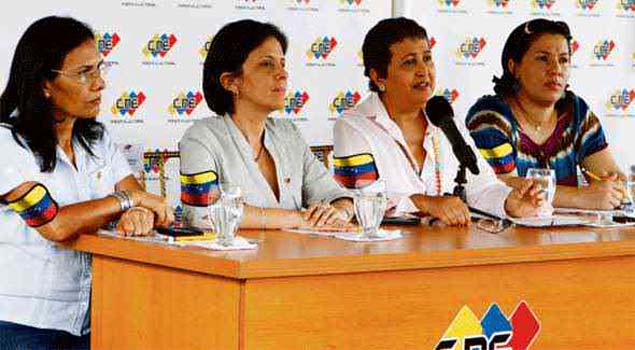
The statement by the head of the National Assembly shows two facts: the chavista bloc did not have the two thirds needed to impose their views on the renewal of the CNE. But it did have the Supreme Court, which ultimately made the task easier and eventually ensured government control over the electoral body.
Article 296 of the Constitution states: “The members of the National Electoral Council shall be designated by the National Assembly by a vote of two thirds of its members.” In short, the Constitution required the ruling party to negotiate with the opposition to appoint a trustworthy electoral arbiter for both parties.
The opposition had expressed its willingness to dialog to reach an agreement, but rejected the initial proposal of the ruling party, who wanted to keep Tibisay Lucena and Sandra Oblitas at the helm of the CNE. “I hope, as a militant of change, that none of the ‘Unity’ bloc in the National Assembly votes anyone who is running again. It is unacceptable to support Tibisay Lucena as CNE director,” said Miranda state governor and former presidential candidate, Henrique Capriles on December 13, 2014.
However, the leader of the National Assembly had already warned: “There is no agreement with the Venezuelan right.” Based on this principle, Cabello appeared on December 22, 2014 before the Constitutional Chamber of the Supreme Court, defended his argument of “legislative omission” and left the work of deputies in the hands of the judges.
Four days later, in a joint presentation, the Constitutional Court followed Cabello’s footsteps and ratified Lucena and Oblitas at the helm of the CNE, as the Government wanted. Similarly, the court appointed Luis Emilio Rondón as chairman, a candidate endorsed by parties in the Democratic Unity Bloc (MUD).
The appointments made by the Supreme Court preserved the existing imbalance in the National Electoral Council, with four directors who are associated with the ruling party and only one close to the opposition.
Extract of the judgment
The omission in a designation is an objective fact which is apparent from the request made by the President of the National Assembly, because there is no qualified majority in Parliament, i.e. two thirds of its members, as required [by the Constitution], and therefore the National Assembly is declared in omission, in appointing the directors of the National Electoral Council in accordance with the nominations made by the civil society. So it is decided”.